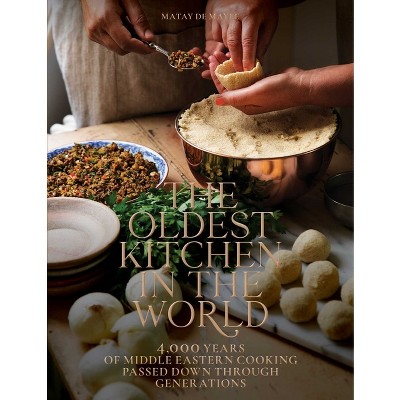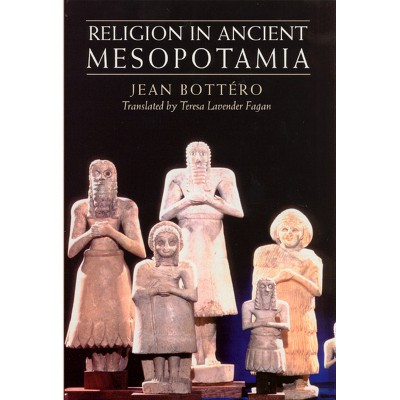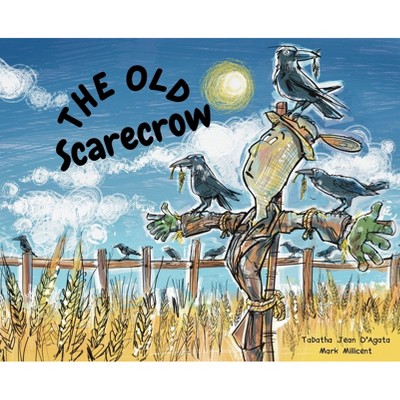Sponsored

The Oldest Cuisine in the World - by Jean Bottéro (Paperback)
In Stock
Sponsored
About this item
Highlights
- In this intriguing blend of the commonplace and the ancient, Jean Bottéro presents the first extensive look at the delectable secrets of Mesopotamia.
- About the Author: Jean Bottéro (1914-2007) was director emeritus of L'École Pratique des Hautes Études in Paris.
- 152 Pages
- Cooking + Food + Wine, History
Description
Book Synopsis
In this intriguing blend of the commonplace and the ancient, Jean Bottéro presents the first extensive look at the delectable secrets of Mesopotamia. Bottéro's broad perspective takes us inside the religious rites, everyday rituals, attitudes and taboos, and even the detailed preparation techniques involving food and drink in Mesopotamian high culture during the second and third millennia BCE, as the Mesopotamians recorded them.
Offering everything from translated recipes for pigeon and gazelle stews, the contents of medicinal teas and broths, and the origins of ingredients native to the region, this book reveals the cuisine of one of history's most fascinating societies. Links to the modern world, along with incredible recreations of a rich, ancient culture through its cuisine, make Bottéro's guide an entertaining and mesmerizing read.
From the Back Cover
In this intriguing blend of the commonplace and the ancient, Jean Bottéro presents the first extensive look at the delectable secrets of Mesopotamia. Bottéro's broad perspective takes us inside the religious rites, everyday rituals, attitudes and taboos, and even the detailed preparation techniques involving food and drink in Mesopotamian high culture during the second and third millenniums BCE, as the Mesopotamians recorded them. Offering everything from translated recipes for pigeon and gazelle stews, the contents of medicinal teas and broths, and the origins of ingredients native to the region, this book reveals the cuisine of one of history's most fascinating societies. As Bottéro concludes, although the ingredients may have differed, food was prepared in a manner astoundingly similar to how we do it today. Such links to the modern world, along with incredible recreations of a rich, ancient culture through its cuisine, make Bottéro's guide an entertaining and mesmerizing read.Review Quotes
"[These recipes] shed light on aspects of social life related to food preparation and eating at the time. Here we are given intriguing, sometimes alluring quotes, on processes of preparation and what the Mesopotamians ate. Often the author has to patch and bridge from the fragmentary bits; what certain items and methods might have been, but he does this with the support of his considerable scholarship, and with a flare that suggests that M. Bottéro must be an accomplished cook himself. These rare recipes carefully reconstructed and sometimes deduced can seem surprisingly modern, yet this book is ever fascinating. . . . It makes one yearn to know more about these ancient sophisticates, as revealed in the swirling robes and haughty profiles of reliefs in the British Museum and in Berlin. Economically illustrated, with neat chapter headings, it is elegantly presented. The engaging chapters go from the practical to the mythical. Truly a wonderful read." -- "History Today" (8/1/2004 12:00:00 AM)
"An enticing new book of Ancient Mesopotamian recipes."-- "Times"
"In this well-structured volume, Bottéro shares the vast scope of his knowledge of ancient Mesopotamian cuisine. Although meticulously documented for the scholar and student, its lucid text also appeals directly to the adventurous home cook whether he/she wishes to recreate a meal of muddulu (salted meat) or a vegetarian sipku (porridge). If it is true that 'we are what we eat' then this book brings us closer to the human side of those who produced one of the first great civilizations to evolve on our planet."--Leonard, author of "Ancient Naukratis"
About the Author
Jean Bottéro (1914-2007) was director emeritus of L'École Pratique des Hautes Études in Paris. He is the author of many books, several of which have been translated and published by the University of Chicago Press. Teresa Lavender Fagan has translated numerous books for the University of Chicago Press.











